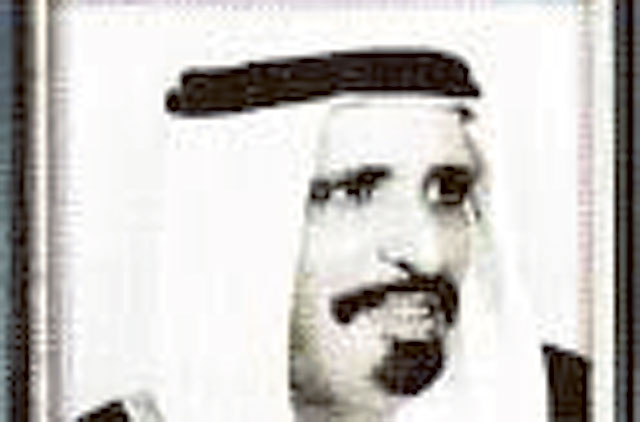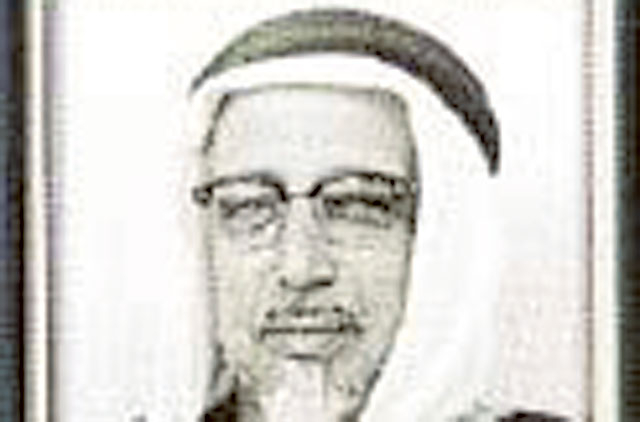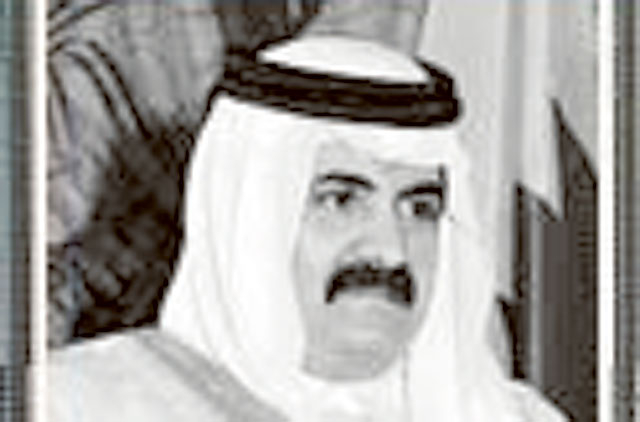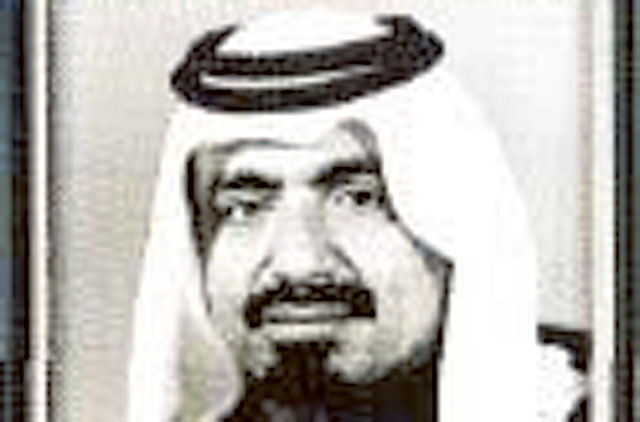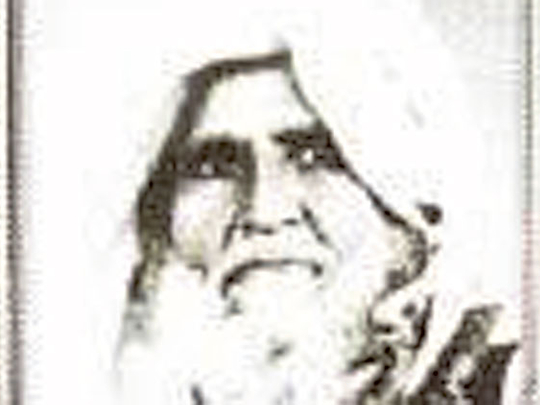
The Al Thani were among a tribal group, which had settled for a long time at Gebrin oasis in southern Najd before they arrived in Qatar during the early 18th Century. Initially they stayed in the north of the peninsula before moving to Doha in the mid 19th century under the leadership of Mohammad Bin Thani. The family of Al Thani is a branch of the Arab tribe Tamim, whose descent can be traced back to Mudar Bin Nizar. This tribe inhabited the eastern parts of the Arabian Peninsula. The name of Al Thani is derived from that of the family’s ancestor, Thani Bin Mohammad, father of Mohammad Bin Thani, who was the first shaikh to rule over the Qatar peninsula during the mid 19th century.
Shaikh Mohammad Bin Thani
1850-1878
In 1847, the Al Thani Family moved from Fuwairat, a small coastal community to Doha, under the leadership of Mohammad Bin Thani. He was born in Fuwairat and upon the death of his father, Thani Ibn Mohammad, became the leader of his tribe at Fuwairat. Eventually, Mohammad Bin Thani extended his influence throughout Qatar and strengthened his position externally too by making alliance with Faisal Bin Turki, the Emir of the second Saudi state, who himself paid a visit to Qatar in early 1851.
By the early 1860s Shaikh Mohammad Bin Thani emerged as the most important figure in Qatar and influential in the Arabian Peninsula. On 12 September 1868, he signed a Treaty with Colonel Lewis Pelly, British Resident in the Gulf, which recognised the independence of Qatar.
In 1871, he made a request to the Ottomans at Ala Hasa for protection against any external attack and in the following year Ottoman occupation of Doha had been completed. In the year 1876, he handed over the administrative responsibility to his son Shaikh Jasem Bin Mohammad Bin Thani due to old age. He died in 1878.
Shaikh Jasem Bin Mohammad Al Thani
1876-1913
Shaikh Jasem Bin Mohammad Bin Thani was born around 1825 and took the full responsibility of Qatar in 1876. He was given the Ottoman title of Qaim Maqam (Deputy Governor). Ottoman attempts to increase their power in Qatar by appointing Ottoman officials including administrators at Zubara, Doha, Wakrah and Khor Al Odaid and by establishing a Custom House at Doha and strengthening their garrison there led to open war with Shaikh Jasem in March 1893. In the battle of Wabah, which was fought 15 kilometres west of Doha, the Ottomans were defeated, effectively ensuring Qatar’s autonomy. Shaikh Jasem died in July 1913 and is widely regarded as the founder of modern Qatar.
Shaikh Abdullah Bin Jasem Al Thani
1913-1948
Shaikh Abdullah Bin Jasem Al Thani was born in Doha in 1880 and, on 17 July 1913, became the ruler of Qatar. Britain and the Ottoman Empire accorded their recognition to Shaikh Abdullah and his successors’ ruler over the whole of the Qatari Peninsula.
The Ottomans also renounced all their rights to Qatar and, following the outbreak of the First World War, Shaikh Abdullah forced them to abandon Doha in 1915.
On November 3 1916, Britain, in order to bring Qatar under its Trucial System of Administration, signed a Treaty with Shaikh Abdullah. While Shaikh Abdullah agreed not to enter into any relations with any other power without prior consent of the British Government, Percy Zakhariah Cox, the Political Resident in the Gulf, who signed the Treaty on behalf of his government, guaranteed the protection of Qatar “from all aggression by sea”.
Following British recognition of Shaikh Hamad, the second son of Shaikh Abdullah as the Heir Apparent of Qatar, Shaikh Abdullah signed the first Oil Concession Agreement with the Anglo-Persian Oil Company on 17 May 1935.
Accordingly, in October 1938, drilling of the first well in Qatar began and the discovery of oil was made at Dukhan structure in January 1940.
However, the oil wells were capped because of the development of the Second World War. On 30 June 1948, Shaikh Abdullah appointed Shaikh Ali Bin Abdullah Al Thani as the Deputy Ruler following the death of Shaikh Hamad on 27 May 1948. He died on 25 April 1957.
Shaikh Ali Bin Abdullah Al Thani
1948-1960
Shaikh Ali Bin Abdullah Al Thani, who was born around 1896, became the Ruler of Qatar following the abdication of Shaikh Abdullah in favour of him on August 20, 1948. On December 31, 1949, the first shipment of onshore Qatari oil was made from Mesaieed terminal, marking Qatar’s entry into the oil age. On September 1, 1952, a new agreement was signed between him and the Iraq Petroleum Company (later Qatar Petroleum Company), under which Qatar acquired 50 per cent of profits from oil exports. Shaikh Ali took steps to establish an effective administrative system to manage the growing economy. Shaikh Ali abdicated on 24 October 1960, in favour of his son, Shaikh Ahmad Bin Ali Bin Abdullah Al Thani. He died on August 31, 1974
Shaikh Ahmad Bin Ali Al Thani
1960-1972
Shaikh Ahmad Bin Ali Bin Abdullah Al Thani was born around 1920 in Doha, becoming Ruler of Qatar on October 24 1960. On the same date Shaikh Khalifa Bin Hamad Al Thani was appointed as the Heir Apparent and Deputy Ruler.
Shaikh Ahmad’s rule witnessed the growing economic activities in the country as the result of the discovery of a large number of oil fields in Qatar. With the growth of oil economy, Qatar moved rapidly towards the introduction of modern administrative system. Shaikh Ahmad established the Ministry of Finance in November 1960 and Shaikh Khalifa was appointed as the first Minister of Finance. Following the British Labour Government’s announcement, in January 1968, of its withdrawal from east of Suez, terminating the Treaties of Protection with the Gulf Rulers and their failure to form a Confederation of the Nine Gulf States, Qatar moved forward by forming a cabinet.
On April 2, 1970, the Provisional Constitution for Qatar was promulgated and the first Council of Ministers of the country was formed on 28 May 1970. The independence of Qatar as a sovereign state, terminating the Anglo-Qatari Treaty of 1916, was declared on September 3 1971. Shaikh Ahmad died on 25 November 1977.
Shaikh Khalifa Bin Hamad Al Thani
1972-1995
Shaikh Khalifa Bin Hamad Al Thani was born in Rayyan in 1932, becoming the Ruler of Qatar on February 22 1972 and starting a process of the reorganising the government.
The first task of Shaikh Khalifa was to appoint a Foreign Minister and an adviser to advise the Emir in the day-to-day affairs of the country. On April 19 1972, he amended the Constitution and enlarged the Cabinet by appointing more ministers.
Diplomatic relations were also established with a number of the foreign countries at ambassadorial level. In the middle of 1991, production of gas in the Qatar North Field, the world’s largest single field of non-associated gas commenced, which has proven reserves of non associated gas of around 250 trillion cubic feet and probable reserves of 500 trillion cubic feet. While the search for finding more oil deposits in Qatar continued, Qatar built an industrial base in order to reduce dependence on the oil sector. In June 1995, the administration of Qatar was transferred to the Shaikh Hamad Bin Khalifa Bin Hamad Al Thani.
Shaikh Hamad Bin Khalifa Bin Hamad Al Thani
1995-
Shaikh Hamad Bin Khalifa Al Thani became the new Emir of the State of Qatar on June 26, 1995. Shaikh Hamad was acclaimed Crown Prince in 1977 and at the same time was appointed Minister of Defence.
In the early 1980’s he led the Supreme Planning Council, which sets Qatar’s basic economic and social policies. Since 1992, Shaikh Hamad has selected Qatar’s cabinet and been responsible for administering the country’s day-to-day affairs. He has also led the development of Qatar’s oil and natural gas resources. He was born in 1952, began his education in Qatar and attended Sandhurst Military Academy in England.
A keen sportsman and an accomplished diver, Shaikh Hamad has played an active role in promoting and developing athletics in Qatar. His activism has enhanced the country’s involvement and performance in a number of international competitions, including: winning an Olympic medal in track and field; hosting a wide variety of international sporting events such as the GCC, Asian and World Youth soccer championships; and initiating the Qatar Open Tennis Championship which has grown to become one of two premier tennis competitions in the Middle East. He is credited with expanding Qatar’s influence on the global stage.
Source: Government of Qatar


